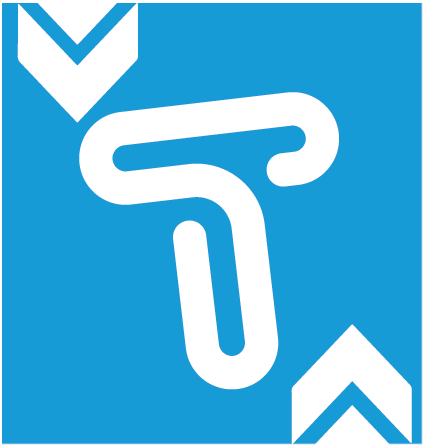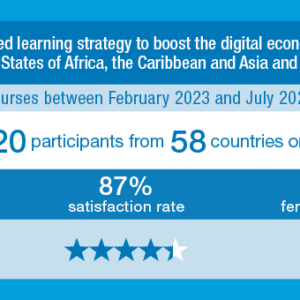Six recognized case studies presented in Port Management Week
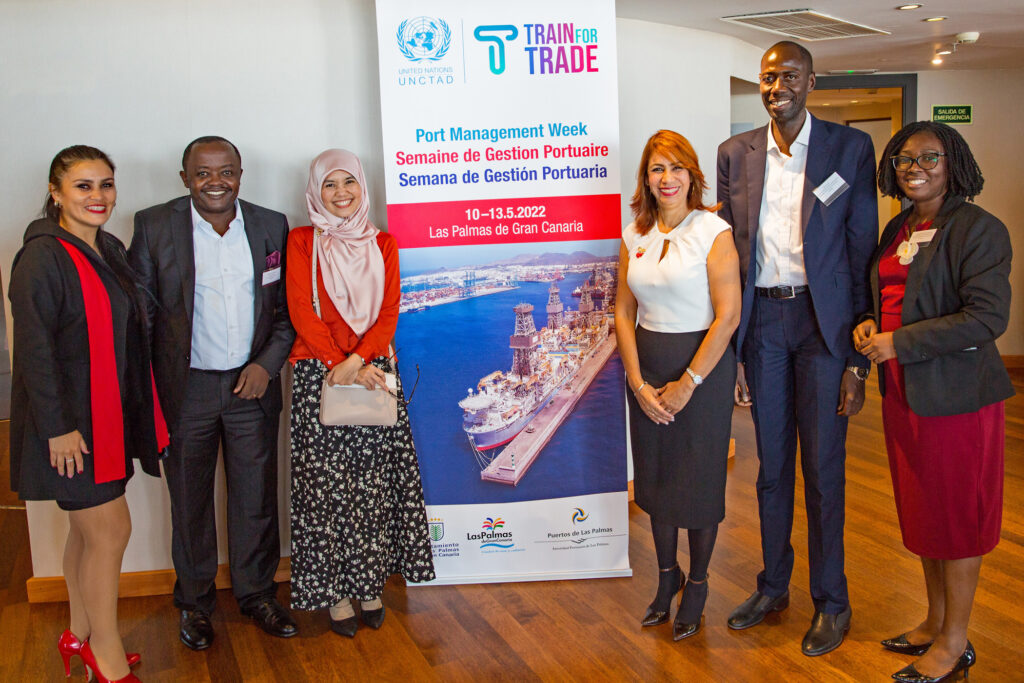
The participants of the Port Management Week in Las Palmas de Gran Canaria were privileged to hear presentations of six recognized case studies from TRAINFORTRADE’s Port Management Series.
Case studies are final dissertations of the Port Management Programme training process. The training consists of eight modules, and the case study accounts for up to 50% of the total marks awarded to course participants.
L’optimisation de la rentabilité du domaine portuaire : cas du Port Autonome de Kribi
Mr. Raoul Armel Fegand from the Port Authority of Kribi (PAK), Cameroon, presented his work on optimizing the profitability of the port of Kribi.
After a report showed insufficient profits for certain ports, Mr. Fegand started to study whether the current context allowed the Autonomous Port of Kribi to ensure optimal management of its domain.
As a result, he produced a long list of recommendations, covering legal, economic, and environmental frameworks, to be used for the further development of the port. These included for example improvements for land issues, installation operations, cost accounting and a creation of PAK economic zone.
Implementation of these recommendations has started, and as a result an improvement of the turnover of PAK has already been reported.
Aumento de Identificación de las Averías a Contenedores en una Terminal Portuaria a Través del Mejoramiento de su Sistema de Iluminación Reduciendo Costos
In the study of Ms. July Mercedes Alcàntara Jiménez from Port of Haina, Dominican Republic, the topic was to improve the system to identify the faults to containers in a port terminal.
Container damages are not only expensive, but they also damage the image of reliability of the port among the customers. The key recommendation by Ms. Jiménez is the improvement of the lightning system of the port. This will help to identify better the possible breakdowns in containers that arrive at the port.
Careful planning is needed in building a proper lightning system. The number of lights and light towers, as well as composition of each tower and their compliance with the regulations and technical requirements must be considered.
A Study on the Evaluation of the Impact of the Performance Contract between GPHA and the Government of Ghana
The case study of Ms. Margaret Aidoo Quarcoopome from Ghana Ports and Harbours Authority (GPHA) evaluated the impact of the performance contract between GPHA and the Government of Ghana”.
Ms. Quarcoopome analysed the Performance contract process and found various implementation gaps, for example inadequate monitoring, limited industry knowledge of negotiators, ineffective checks, and non-functioning performance incentives and sanctions.
Her recommendations include reforms and resourcing of the State Enterprises Commission, improve the timely capture of data, more involvement and communication to port staff, and improved awareness of performance measurement among managers.
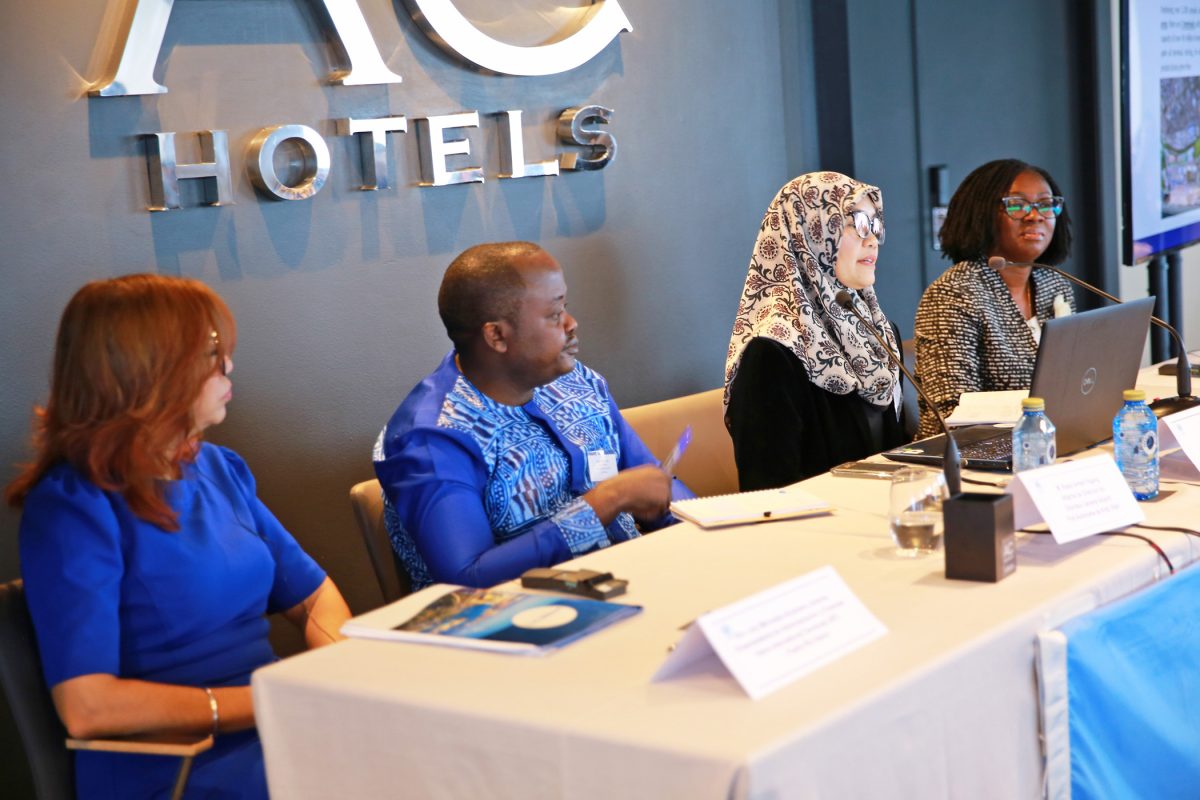
Investigation on How to Reduce Freshwater Usage and Charges for Landscape Irrigation and Cleaning Activities for Johor Port Berhad
Ms. Rabiah Nadir from JohorPort Berhad, Malaysia, researched on how to reduce freshwater usage and charges for landscape irrigation and cleaning activities in her port.
The target of Ms. Nadir’s study was to entrap 10 million litres of rainwater by implementing rain harvest systems. This would facilitate landscaping activities and maintenance of higher level of cleanliness in the port.
This system has now been implemented in three port areas. In just two years, the first three projects have given back the return of investments for the water costs of the whole port.
Desarrollo sostenible entre el Terminal Portuario de Matarani y el Área de Influencia Directa – Relación Puerto Ciudad
Ms. Jacqueline Paredes Corrales from Terminal Internacional del Sur, Peru, studied in her dissertation sustainable development and port-city relationship.
Ms. Corrales highlights the importance of reconciling the necessary port development with the development of the urban area. The operator of the port must deal with social aspects and economic and environmental risks.
Strategies to implement in the development of the port-city, should focus on human capital. According to the recommendations of this study port operator should execute strategies aimed at improving the conditions of life in its direct zone of influence. Port will provide the city with social benefits and economic development, and in turn, should receive from the city an adequate labor force for its operations.
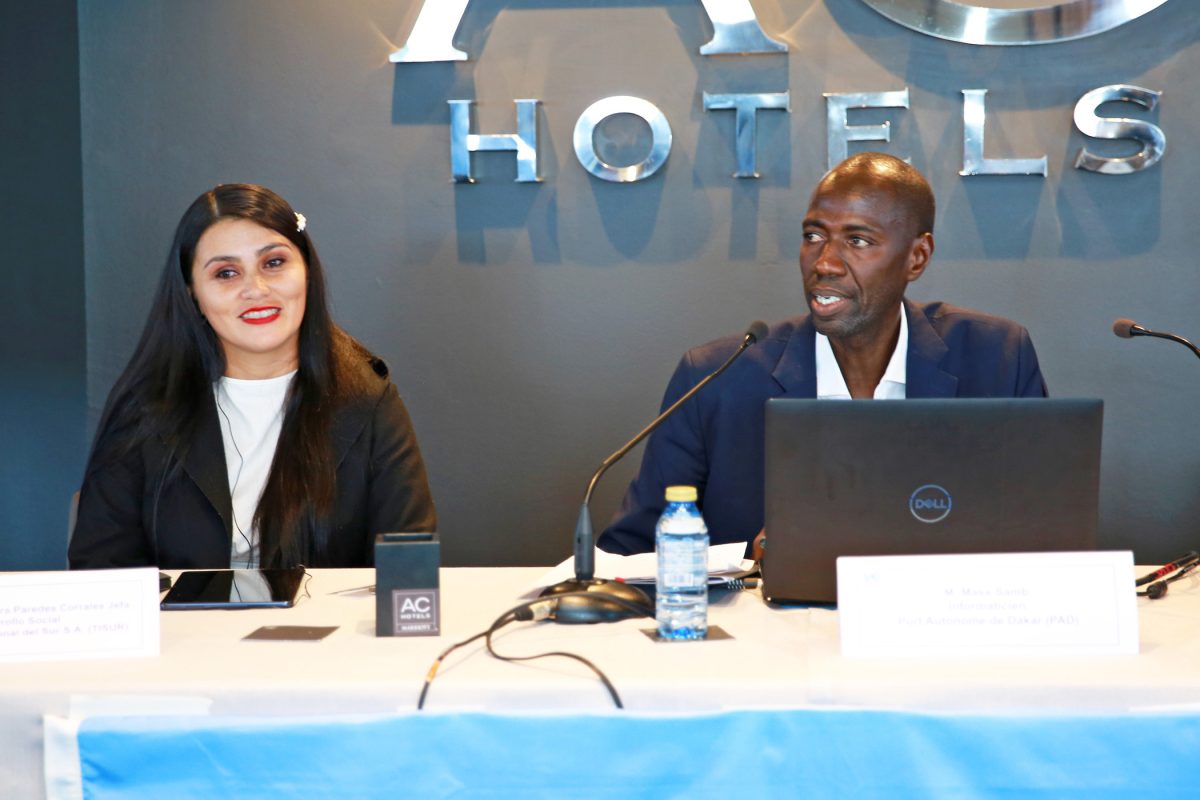
Mise en place d’une plateforme centrale d’échange de données informatisées au Port Autonome de Dakar
The topic of the case study of Mr. Mass Samb from the Port Authority of Dakar, Senegal, was the establishment of a central computerized data exchange platform in his port.
In his analysis he discovered that daily exchange of information and documents by different actors constitute a significant volume of information with complex processes. An organized reliable computer system was needed to allow control and coordination, and especially to optimize information flows and port performance.
Recommendations of Mr. Samb contain establishment of a single platform to optimize and centralize data usage, and to manage the information flow functionalities independently from the business applications, to make the information structure simpler and less expensive. This all will result in a more flexible, faster, and reliable exchange of data.


